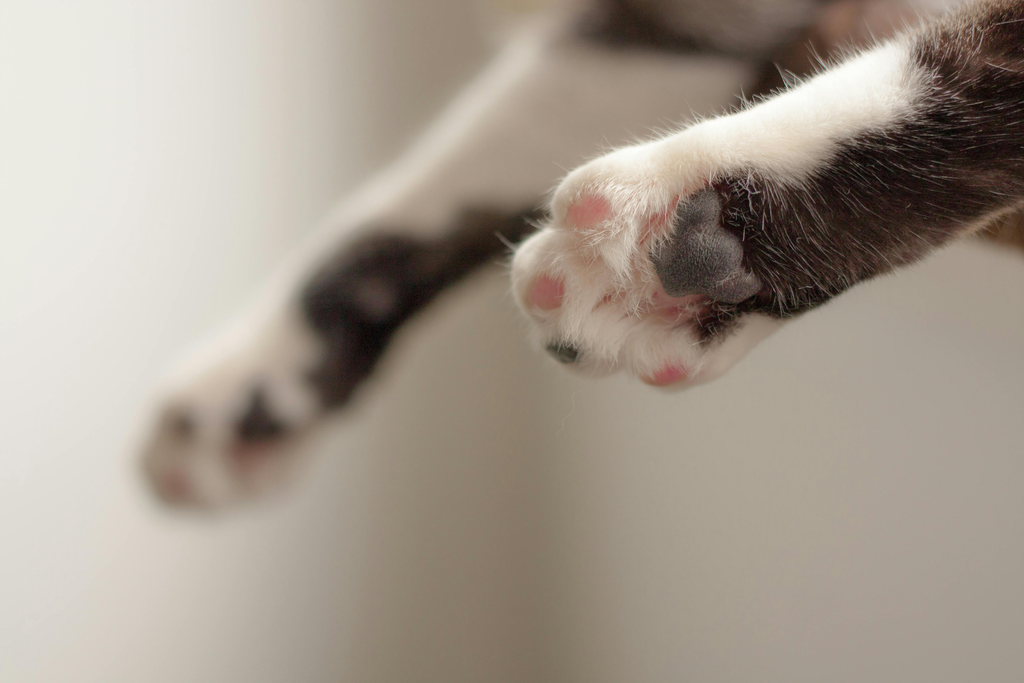Intestinal Cancer In Cats: Signs And Treatment
Intestinal cancer is no doubt one of the most serious gastrointestinal conditions that your feline best friend can ever go through. As its name implies, cats diagnosed with this rather painful cancer affect the intestinal tract and may even show a form of abdominal mass during this disease.
What's really alarming about this type of cancer in cats is that it is not just painful, but also quite fatal. The latter outcome usually gets in the picture if there is no early detection as well as the application of immediate and proper medical treatment. In short, it will drastically impact your cat's quality of life in a negative way.
We've put together this blog post to give you a quick guide on what intestinal cancer is, including its types, the symptoms to look out for, the risk factors involved, as well as how it is diagnosed. We also included some tips on pain management and cancer treatments for affected cats.
Before we continue, we'd just like to emphasize that this article is aimed at giving information and does not constitute medical advice. When it comes to cancer affecting your cat's stomach or small and large intestine, consulting a veterinary medicine practitioner is still your best resource.
If you still have questions about this or any other cancer affecting cats, take a look at our complete guide to cat cancer to find out more. How about we kick things off by finding out what exactly intestinal cancer in cats is?
What Is Intestinal Cancer In Cats?

For starters, cancer in cats affecting the small intestine or large intestine takes place when cancerous cells invade the gastrointestinal system. It is also often mistakenly deemed as stomach cancer since it can affect a cat's stomach, particularly when the abnormal cell growth has already breached the intestinal wall and has spread to the surrounding tissue and other vital organs.
Whether it is the large intestine or small intestine affected, this type of cancer is also referred to as "bowel cancer in cats" or "feline colon cancer." The reason for this misleading designation is quite simple. This serious disease often stems from malignant intestinal tumors that can quickly extend throughout the stomach, lymph nodes, and other organs.
The majority of intestinal tumors in cats are in the small intestine and are lymphomas. Some other types of tumors that affect the intestine are adenocarcinomas, mast cell tumors, and leiomyosarcomas.
What's the Difference Between Intestinal Tumors and Intestinal Cancer in Cats?

We'd just like to stress as early as now that intestinal tumors and intestinal cancer in cats are not one and the same. These terms should not be used interchangeably since they have varying attributes and even best possible treatment outcomes.
When you say "intestinal tumors," it pertains to abnormal growth or mass affecting the small intestine or large intestine. They are made up of neoplastic cells and may either be benign (non-cancerous) or malignant (already involves cancer cells). Both of these kinds of tumors grow unexpectedly.
Benign intestinal tumors can possibly become large and may even lead to some form of intestinal obstruction. However, they won't affect surrounding tissue, the lymph nodes, and other vital organs, among others. Tumors are not as detrimental to your cat's condition but still need to be given proper treatment.
On the other hand, intestinal cancer in cats are tumors that are malignant. Aggressive stomach or intestinal cancer have the ability to "metastasize" or spread to other parts of the body. Aside from enlarged lymph nodes, other vital organs can also be affected.
It is crucial to take note that whether it is intestinal tumors or cancer in cats, getting in touch with a veterinary oncologist is a must to appropriately strategize your next steps and curb further gastrointestinal issues. Cats treated early have much higher chances of overcoming this terrible health problem.
What are the Types of Feline Intestinal Cancer?

Interestingly, the term "intestinal cancer" can pertain to different variations of the disease depending on your pet's condition, symptoms, and diagnosis. The following are the common (and not so common) types as well as sources of feline intestinal cancer:
1. Intestinal adenocarcinoma
Intestinal adenocarcinoma is deemed as the most common type of non-hematopoietic (meaning they originate from stem cells) gastrointestinal tumor in cats. Most cats diagnosed with this type of cancer are at risk of having all segments of their intestines affected. It is also commonly associated with unexpected weight loss.
2. Leiomyosarcoma
Leiomyosarcoma is a type of cancer in cats that attacks the stomach and intestinal walls. This form of cancer in cats is pretty rare, but there is still a slim chance that your feline companion could be susceptible to this disease.
3. Lymphoma
Lymphoma usually develops from the lymph nodes. Having enlarged lymph nodes is one of the most obvious signs that they are compromised with cancer cells. From the lymphatic system, the cancer can potentially jump to a cat's stomach or intestinal wall and set off gastrointestinal conditions.
4. Mast cell tumor
Technically referred to as a feline intestinal mast cell tumor or FIMCT, this type is regarded as the third most diagnosed malignant tumor in cats. Lymphoma and adenocarcinoma have the first and second spots, respectively. The enlarged masses in the GI tract can cause excessive tightening of the organs, which possibly makes it painful cancer.
5. Gastrointestinal stromal tumors (GIST)
Gastrointestinal stromal tumors or GISTs develop in the intestinal cells that regulate the movement of food in the GI tract and its eventual expulsion from a cat's body. This type can lead to a number of gastrointestinal issues sooner or later.
6. Carcinoid
A carcinoid is described as a form of slow-growing cancer in felines that is commonly related to "neuroendocrine tumors." These usually develop in the GI tract, particularly the rectum, colon, small intestine, large intestine, as well as a cat's stomach. Cats can have a carcinoid for years without even knowing or showing signs of it.
7. Hemangiosarcoma
Hemangiosarcoma stems from blood vessels that are affected by cancer. What's really scary about this type is that it can just stem from aggressive stomach cancer and other forms of cancer in the GI tract.
Notwithstanding the type or source of intestinal cancer in cats, thorough diagnostic testing is always crucial to arrive at an accurate diagnosis. A veterinary oncology team may even require further diagnostic testing (such as comprehensive blood tests) to really come up with the best possible treatment outcomes.
What Causes Intestinal Cancer In Cats?

Despite the developments in modern medicine, the exact cause of intestinal cancer in cats is still unknown. But the thing is that there are some risk factors theorized to be associated with this serious cat's condition.
While we can’t determine one singular cause for developing cancer, we do know that age, gender, and breed can be risk factors for certain cancers. Intestinal cancer tends to be diagnosed more frequently in older cats between 10-12 years old.
Additionally, male cats often develop intestinal cancer more often than female cats. With respect to pedigrees, Siamese cats are a breed that is more likely to be diagnosed with this cancer. Statistics provide that they can be up to 8 times more likely to develop adenocarcinomas (and may require more stringent pain management strategies) than other breeds.
Is Stomach or Intestinal Cancer Deadly?

Unfortunately, both stomach cancer and intestinal cancer in cats can be fatal to your feline best friend. This is the reason why speedy detection and being familiar with their signs and symptoms can mean the difference between life and death as regards these serious diseases.
While there may be obvious signs and symptoms, such as in the case of unexpected weight loss and significantly reduced appetite, there are also indicators that required diagnostic testing to really determine your pet's condition. Some of them may even need the expertise of a veterinary oncology team to ascertain.
Moreover, given that cats rarely exhibit gestures of pain and discomfort, it can be rather tricky to determine if they are going through gastrointestinal issues. There are some cases of these terrible health problems where no cancer treatments can be resorted to and palliative care is the only remaining option.
Just to reiterate, stomach cancer and intestinal cancer in cats can be deadly to our pets—with each of them a painful cancer at that. This is why an accurate diagnosis and the right treatment plan are crucial when these diseases turn up.
Types of Tumors in the Gastrointestinal Tract in Cats
The types of tumors in cats that ultimately become intestinal cancer are the same as we've discussed earlier. These are tumors that progress into intestinal adenocarcinoma, leiomyosarcoma, lymphoma, malignant mast cell tumors, carcinoids, malignant GISTs, and hemangiosarcoma. In rare cases, these can also include plasma cell tumors.
Symptoms of Intestinal Cancer In Cats

So how do you know if your cat has intestinal cancer? Given that cats don't seem to be very overt when they feel any pain and discomfort, it can be pretty tricky to determine the same. However, make sure you consult your pet wellness expert or vet immediately when you notice the following symptoms:
-
Vomiting (usually accompanied by bright red blood)
-
Significantly reduced appetite
-
Rapid weight loss
-
Diarrhea (could also be accompanied by blood)
-
Difficulty defecating
-
A drastic change in bowel movement and bathroom habits
Additionally, the following symptoms may also be observed in cats when they go through stomach cancer or intestinal cancer in cats:
-
Lethargy
-
Strange changes in behavior
-
Difficulty breathing
-
Having a tough time swallowing water or food
-
An overall change in a cat's quality of life

Of course, if your cat has these symptoms, it doesn’t always mean intestinal cancer! There are other illnesses that might be affecting your cat, like parasites, or eating bad food. However, if you notice any of these or other unusual symptoms, make sure to get him or her checked out as soon as possible.
We'd just like to stress the importance of having an accurate diagnosis when it comes to feline stomach cancer and intestinal cancer. As emphasized earlier, the expertise of a veterinary oncology team may be required in some cases.
How is Feline Intestinal Cancer Diagnosed?

Whether it is stomach cancer or intestinal cancer in cats, a thorough physical examination is the very first thing your vet will do when there are indicators that your feline friend might be affected by either of these diseases.
However, given that neither stomach cancer or intestinal cancer can be quickly determined by a physical examination—no matter how thorough it may be—there will be further diagnostic testing that will be administered, which usually involve the following:
Biopsy
Biopsy is a diagnosis procedure that involves using a thin needle to extract some tissue samples from the affected areas in stomach cancer or intestinal cancer. Similarly, fine needle aspiration (FNA) utilizes a much thinner needle compared to that of biopsy.
Endoscopy
Endoscopy is another diagnosis method that uses a tool with a tiny camera that is inserted into a cat's gastrointestinal tract when checking for stomach cancer or intestinal cancer. While this procedure is not painful for felines, anesthesia is used to ensure that your pet won't feel any kind of discomfort.
Abdominal ultrasound or imaging
As its name implies, abdominal ultrasound or imaging is a diagnosis procedure that makes use of controlled yet regular sound waves to provide "images" of the stomach or the GI tract. Given that this can be a painful cancer for your pet, having real-time imaging can be very useful for pain management and appropriately prescribing medications.
Urinalysis and urine cytology
These diagnosis methods go together to really determine the presence of cancerous cells. Apart from stomach or intestinal cancer, these procedures are also used in checking for bladder cancer and similar anomalies in the urinary tract.
Blood tests
Deemed as a crucial diagnostic testing element when it comes to intestinal cancer in cats, blood tests are used to check any unusual spikes not just in the physiological functions, but also in the overall immune response. It is important to take note that your pet's immune system plays a key role in keeping cancer in cats at bay.
Feline Intestinal Cancer: Life Expectancy
The life expectancy of a cat diagnosed with intestinal cancer can be from a few weeks to 2 years, depending on the location, type, and size of the tumor, as well as if it has already spread. If the tumor has already metastasized (spread), generally the average survival time is a few months after surgical treatment. The biggest concern is the cancer spreading to other areas or returning again after treatment.
The Usual Conventional Treatment Option for Stomach or Intestinal Cancer You May Hear About

The following are the most common conventional treatment options when intestinal tumors and intestinal cancers in felines are concerned:
Surgical removal or surgical intervention involves removing or taking out of the diseased areas affected by the disease. It is also crucial to perform surgery when there are certain blockages that can restrict proper gastrointestinal function. This procedure can be a standalone treatment or used together with radiation therapy and similar recourses.
Radiation therapy pertains to the use of powerful radiation to get rid of cancerous cells. The only drawback with this treatment choice is that it can also inadvertently kill healthy cells during the process.
Chemotherapy refers to the use of strong medicines to overcome cancerous cells. Your veterinary medicine practitioner may prescribe medications that can be administered orally, intravenously, subcutaneously, via intralesional means, as well as intramuscularly.
Intestinal Cancer In Cats: A Natural Treatment Choice You Should Check Out

As we've emphasized previously, this blog post does not constitute medical advice but only offers useful information about gastrointestinal cancer. However, we'd like to highlight a natural product that has already been seen to have positive benefits for cats that are affected by this disease.
This is the biggest reason why we want to introduce you and other pet parents to PIPTOPET, which is a natural product that is designed to help deal with cancer in cats. It has already garnered amazing ratings from Catster, Dogster, as well as Hepper.
PIPTOPET has been specially created for pets who are fighting cancer. It helps boost your pet’s immune system. A good immune response can help your cat in its fight against the disease. You will also be relieved to know that it can be used on its own or with other conventional treatments, too!
If you're still having a tough time zeroing in on a reliable natural product that will help support your feline companion during intestinal cancer in cats, PIPTOPET is one option you should consider.






Sorry to hear this Nataliya ! We have sent you an email called : ZUMALKA- Free mini-consultation for your pet! Looking forward to hearing back from you !
The cat presents with a history of defecating inappropriately around the house ( not in her litter). Now she is producing small fecal balls. No vomiting, but she is not eating. She has lost a tremendous amount of weight in about a month’s time. Her gums are a bit pale and her inner pinnae has a slightly yellowish hue. Abdominal palpation reveals a firm abdominal mass. Radiographs confirm and the intestinal lining appears thickened.
The doctor avised abdominal ultrasound, but I can not afford it.
Leave a comment